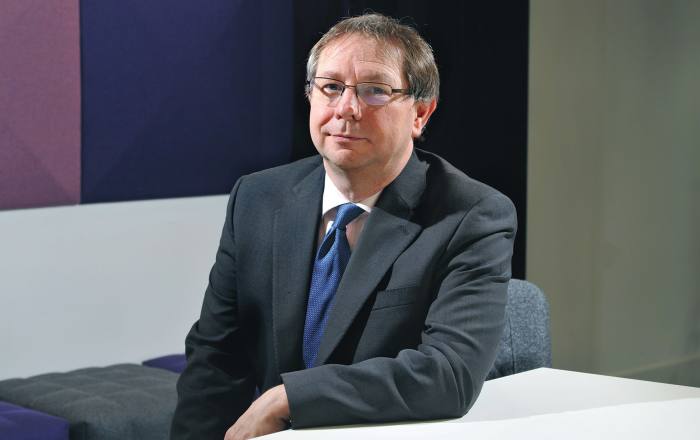
Royal London Asset Management’s head of fixed interest, Jonathan Platt, is reminiscing about how the fixed income market in the UK has changed over the years.
“When I started fixed income investing within Royal London 25 years ago, I was probably responsible for managing one other person and £1bn. [That] was a lot of money then, but it was a very small amount in the context of global assets,” he recalls.
“Now I’m responsible for a team of 30 people, and we manage £50bn of sterling assets.”
The comparison underlines how far fixed income as a sector has developed over the past two-and-a-half decades, spurred on by a bull market that has spanned the whole of that period.
By contrast, when Mr Platt joined RLAM in 1985 as an equity analyst, he recollects that the asset base was around 80 per cent invested in equities.
“I started as an analyst, and then managed a high income unit trust that combined equities with an element of fixed income, which propelled me to get more involved in fixed income.”
He says the year 2000 was a “turning point”, following a series of mergers and acquisitions at the firm. Mr Platt’s fixed income team began to grow and he acknowledges he went from being solely a manager of money to a manager of people.
“I’ve had to adapt to that, in terms of I’m a fund manager at heart. I like markets; [they]are what interests me,” he says.
“It’s about challenging yourself against other people, delivering to your clients and making them central to what you do.”
For Mr Platt, the right kind of motivation is extremely important and that means motivating people as a team. “We’re seen at times as just being there to benefit from the remuneration that’s available in a well-paid industry,” he says, recognising the perception some people have of the financial rewards available to star fund managers.
“If you’re leading a team that is just focused on ‘how much I’m going to get out of it’, you’re not going to succeed. You’ve got to create a team environment in which people like working with each other – they’re not looking to see one person’s success, it’s actually the team working together.”
He adds: “At times, when you get your views on markets wrong, you feel that’s the hardest part. But it’s about how you structure a team, how you inspire and lead that team, and how you get people thinking in a team environment when naturally financial services/asset management tends to be quite ego-driven and individualistic.”
The salaries commanded by portfolio managers are likely to face increasing scrutiny in the wake of the FCA’s review of the asset management industry, which has flagged up concerns on costs and charges among active managers.





